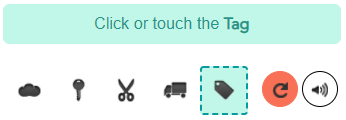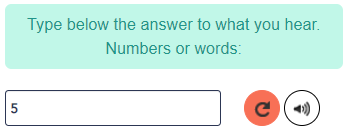Can you buy a 12-month car insurance policy?
Although most car insurance policies last for six months, some companies offer 12-month policies. In theory, a 12-month policy secures your rate and keeps your insurer from raising your premium for an entire year. Whether or not this is a good car insurance policy for you depends on your driving record, personal details, and your insurer.


Which insurance companies offer 12-month policies?
While we’ll get to why you might want a 12-month policy, let’s breakdown which companies actually offer these policies. 12-month car insurance policies are not very common. You typically have to specifically ask for them during your quoting process as most companies will default to 6-months. Below are some car insurance companies that offer 12-month policies.
• Liberty Mutual
• USAA
• Erie
• The Hartford
• MetLife
• The General
• Infinity
• Kemper Speciality
• SAFECO
• Unique
There are instances in which you might not be eligible for 12-month policies within these companies. For instance, if your state does not offer the program. Furthermore, if you’re not eligible for the company — USAA only accepts military members and their families whereas The Hartford only offers coverage for drivers over the age of 55.
Table of contents

Table of contents

Every year, an insurance company will review its claims to revenue ratio to help determine what their premiums should be going forward. If your insurance company paid out more in claims than it earned in revenue during the previous period, it could result in higher premiums to offset this deficit.
The benefit of a 12-month policy term is the relative infrequency of rate revisions. Six-month policies result in rate revisions twice each year. However, less frequent policy renewals could be negative, depending on your situation. However, rate revisions can sometimes be positive — the company was profitable and a lower rate is issued. However, this is fairly rare. It’s more likely to have a rate revision that increases your rates than one that lowers them.
In nearly all other aspects, a 12-month policy is the same as a six-month contract. You still pay a down payment, must meet your state's required coverage level, and pay your bill on time.
How much does a 12-month auto insurance policy cost?
As we stated, twelve-month policies are uncommon. If you’re insured by a car insurance company that sells yearlong policies, they might not be available to you based on your location or driving profile. Below are estimated prices for 12-month car insurance policies from leading insurers
12-month car insurance: benefits & cheapest companies
The primary benefit of a 12-month car insurance policy is that your rate is locked for an entire year. On a standard 6-month policy, rates are “revisited” every 6 months via a rate revision. Even if you didn’t have an accident, add/change vehicles or drivers, your rate can still increase due to a rate revision.
Insurer
Average Annual Premium
Infinity
The General
Kemper Speciality
SAFECO
Lighthouse
Unique
Liberty Mutual
USAA
Erie
The Hartford
MetLife
$3,918
$3,739
$3,395
$2,542
$2,366
$2,256
$1,538
$916
$2,312
N/A
$1,798
The above rates are averages. Depending on your exact location and driving record, your premium can change. Below, see what these premiums would cost on a monthly basis.


Should you buy an annual car insurance policy?
Now that we’ve explained the potential benefits of a 12-month auto insurance policy, let’s assess whether it's a good idea for you. What are the downsides of locking in your rate for 12 months?
12-month policies are difficult to find
Most major insurance companies do not offer annual auto policies. Six-month policies are the standard in the insurance world, as they allow insurance companies to recalculate rates more often. Some popular companies might offer 12-month policies via their legacy policies, but you will have to do some research on your own.
Your rates are locked in for a year
This is both a benefit and con of an annual insurance policy. Car insurance companies use a number of rating factors to determine how your premiums change. Most companies will continue to charge you after an at-fault accident for three to five years. Even if your violation penalty period expires in the middle of your policy, your insurance company won't remove this violation from your premium until your term is over.
In this scenario, you'd end up paying more because of your lengthy policy. You could contact your insurance company and ask them to “re-pull” your rate in order for the violation to no longer be counted on your current policy, but that might not always work.
An accident falling off your insurance record is only one example. Below are common personal attributes that can impact your premium if and when they change.
• You celebrate a birthday
• Your credit score changes
• A speeding ticket expires
• You pay off a vehicle loan


Lower rates are not guaranteed
Although your rates are locked in for a year, that doesn’t equate to an automatically lower premium. Your best bet for finding the most affordable premium to shop around with as many companies as possible — for 6-month and 12-month policies. Enter your zip code below to get started.
Table of contents




























